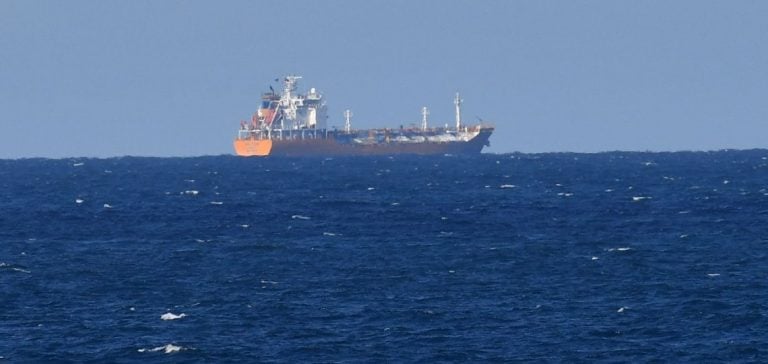The British government announced on October 17 the blacklisting of 22 oil tankers and liquefied natural gas (LNG) vessels, marking its “largest package of sanctions to date” against Russian shadow ships.
Among the sanctioned vessels, 18 are oil tankers totaling 2.2 million deadweight tons (dwt) that have transported up to 62.9 million barrels of Russian crude and fuel oil this year, according to an analysis based on S&P Global Commodities at Sea data. More than half of this oil has been shipped to India. These ships have transported an estimated $4.9 billion worth of oil over the past year, the British government stated.
Impact on Russian Energy Trade
Four LNG vessels with a total capacity of 551,000 cubic meters and the Russian gas company Rusgazdobycha have also been added to the sanctions list. Among them, six oil tankers and one LNG vessel belong to Sovcomflot, a Russian state-owned oil company already sanctioned by Western authorities.
Reactions and Consequences
“The United Kingdom is leading the charge against [Russian President] Putin’s desperate and dangerous attempts to cling to his energy revenues, with his shadow fleet endangering coastlines across Europe and the world,” stated Foreign Minister David Lammy in a statement.
This action comes after media reports indicated that UK-linked businesses were assisting Russia in assembling a substantial shadow fleet to transport sanctioned energy products, suggesting a lack of enforcement of sanctions by the United Kingdom.
Challenges in Sanctions Enforcement
Earlier this month, the British Ministry of Finance confirmed the opening of 37 investigations into suspected breaches of sanctions against the Russian oil industry. As a G7 member, the United Kingdom has sanctioned tanker managers and operators, the ships themselves, as well as the Russian insurer Ingosstrakh for alleged breaches of sanctions since late last year. The total number of sanctioned oil tankers has reached 43.
Effectiveness of Sanctions
To undermine Russia’s war chest in the conflict in Ukraine, the G7 and the European Union have established price caps on Russian crude and petroleum products, banning maritime service providers from facilitating their trades unless the barrels are sold below these thresholds. The Arctic LNG 2 project, with a capacity of 19.8 million metric tons per year, is also sanctioned.
However, industry participants have indicated that Russia has amassed a large tanker fleet to transport oil in circumvention of Western measures, while beginning to do the same on the gas side. The shadow fleet typically comprises older ships that are less well-maintained and insured, posing safety risks to global maritime trade. Western governments have struggled to effectively enforce the measures they have introduced, as some major buyers of Russian energy, such as China, refuse to comply.
The tankers sanctioned by the United Kingdom are not allowed to enter British ports or access maritime services provided by British companies, which hold the highest market share in marine insurance markets. However, none of the 22 ships appear to be insured by Western protection and indemnity (P&I) clubs, according to data from S&P Global Maritime Intelligence Risk Suite and the International Group of P&I Clubs.
Data from S&P Global Commodities at Sea and Maritime Intelligence Risk Suite suggests that 83.8% of Russia’s seaborne crude exports last month were transported by tankers not flagged, owned, or operated by companies based in the G7, the European Union, Australia, Switzerland, or Norway, and not insured by Western P&I clubs, the highest level since the crude price cap came into effect.






















